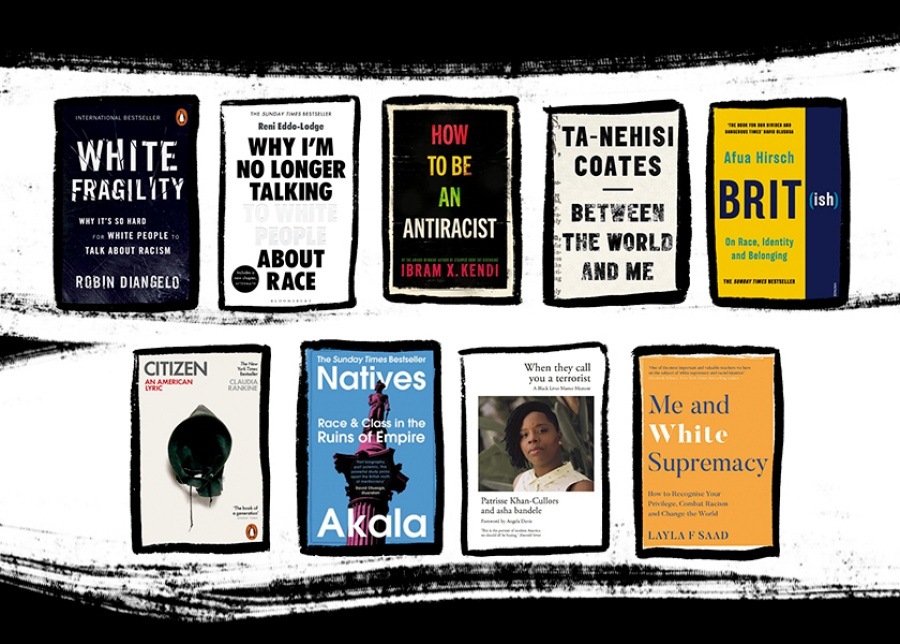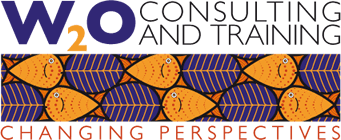Passionate about gender? But can you do anything about race?
If you are reading this blog it means you are most likely just as passionate about gender as I am. But what about race? The death of George Floyd has sparked a wave of protest, and race is definitely on the agenda now. But what can you do? If you happen to be white and privileged, is there anything you can do? Perhaps it’s too hard. Perhaps it’s too difficult, as before you know it, you get it wrong.
That’s what I used to think. I thought that race wasn’t my topic, and perhaps someone else should do race. But that is changing. So how did this change? What did I learn from it? And what can you do with that?
I am openly sharing my journey below, but it is not something I am proud of. I am openly going to admit I had it wrong, and I am learning. I hope it will help some of you understand your own journey, and make you a better advocate for gender inclusion, and perhaps even help you on your journey with race inclusion too.
The start of my journey
First, I got a request from a University in the US, could I promote their course for black women to my audience. I thought about it and concluded that I didn’t really know any black women. But I like being helpful, so I checked my LinkedIn profile. That’s when I realised I know Vanessa, and Barbara, and Jenny, and going through my list of contacts it turned out there were plenty of black women I knew. I just hadn’t really noticed their colour. I saw them as professionals. At the time I thought that was a good thing. Now I know better.
Next, my clients were asking me if I could do more on diversity and inclusion, so of course I got a bit more interested. Then one day I passed a bookshop and came across a book, ‘Why I no longer talk to white people about race’. The provocative title jolted me into action. I read it instantly and only then understood that systemic racism is a thing, and that even I can do things to combat racism. I read more books. I also spoke with some experts in the field, who do for race what I do for gender, which was enlightening.
The personal struggle
But I wasn’t done yet, I needed to know for myself what it was like. I felt I needed some personal verification. Perhaps it was true in the big picture, but it was much harder to imagine that the people I knew were actually troubled by racism. They were successful, well-educated people, that I regard highly. So I checked. I had some very frank conversations with some of the Black and Asian people I know. As you do, I made some mistakes. I asked the wrong questions, put them on the spot and – I am ashamed to say – probably didn’t get the questions or terminology right. It must have been uncomfortable for the people I spoke with. It’s so hard to have these conversations in the right way. I do hope they forgive me, and I do hope they can see that I did it with the intention to learn. I am very grateful they were patient with me and gave me a chance to learn.
Becoming an ally
Incredibly, these conversations did what no book can do. They drove the message of racism right into my heart. I could no longer ignore it. If even people that I know and value come across it daily, and tell their children to be careful around the police. If even those people tell me that they have to work twice as hard and be twice as careful. Then that can’t be right, can it?
Now, I am an ally. I look differently at what I read and hear, and ask myself. ‘What is the bias?’, ‘What are the real numbers?’ , ‘What could be behind this?’. In addition, I call people out if they are openly racist.
What learning about race taught me about gender
It’s been a journey, and I am still on it. What did I learn so far? Apart from learning lots about racism, my own journey has given me great insight into how men think about gender. Just like me, most men start off by thinking gender isn’t an issue. They just look for merit, rather than gender. To change their mind, they need something to spark their interest. This can in fact be one of my talks or someone sharing my book, or one of my videos. Or it is a talented woman leaving their company, or the experiences of their own wives or daughters.
Then they start reading up on it. But they are not done yet. They still need to have those conversations.
I used to be baffled about that. In my workshops I would tell people about gender differences, and how they impact women at work. The first thing most men would do is turn to their female colleague and ask: ‘Really? Is it like that for you? Surely it’s not like that here and we are a nice place to work?’. Now I know where that comes from. Now I understand. That is helping me talk with men. It is helping me share what I know about gender and gender difference over and over again.
What you can do
Here’s a great list with books to help you understand racism compiled by Penguin. It’s really worth educating yourself. It may help you understand better why black people are angry, and it may also help you with your work on gender diversity!
Learn. Listen. Educate yourself. That’s how we grow.




Author: Inge Woudstra
Would you like to know more or have a question? I am always happy to have a chat to discuss your needs. Why not drop me a line or pick up the phone? Call me at 01372 457 907 or Just contact me to discuss your requirements by e-mail.I can help you recruit, retain and advance women, and typically work with organisations in tech and engineering.
Or just check out my book 'Be Gender Smart - The Key to Career Success for Women'
2 Comments
All the years I have known you, you have never ever focused on black women.. What is so disappointing that you have never consider intersectionality or black women when you have spent years working on gender. I used to ask myself are you racist, and I concluded you are! Evidence required, your history in the gender space. Never taking the time to include black women. Us black women are not stupid. We see right through you. Some may give you a pass because you are working in gender but the knowledgeable ones know the truth. You are part of the systemic racism issue that breeds in D&I. White people doing D&I but NEVER taking any interest in Race and/or Black women and their issues. Never caring but I constantly hear “I am doing gender”
Your gender programmes like your book have been written and run with white women in mind. Please do not say they have because they are. It is not just about putting out a statement, its understanding how you have been perceived and how you have contributed to this and systemic racism. Sorry is not good enough, all you have done is tick the boxes. You really need to examine your behaviour. Do you REALLY understand why people are protesting, Do you really understand how systemic racism impacts on black women and do you really understand how you have contributed to it?
You will say that you are not racist, however it is not good enough to say that you are not racist, you need to be anti-racist. Its time you held up the mirror and stop seeing what you want to see. You need to prepared to see and hear the hard truth. and hopefully that will l lead to change.
I am please and happy that finally white people are protesting and have the willingness to learn. In fact I am extremely happy they are eager to learn. But you, don’t make out you know everything because you don’t. Until you sit back and reflect what I have written you are not an ally to the black women, you are just part of the problem that myself and many others are protesting against.
Thanks so much for following me and for speaking out. I have always worked from a conviction that you need to focus on what you know. My experience is that of a white middle class woman, and that’s the world I have grown up in and know well.
In the past I have worked in India in development and learned it is rather presumptious and ineffective for foreigners to come and pretend they can help in a world they don’t know. That’s how I learned the valuable lesson that you can make most of a difference to the issues you are close to. Over time, as I describe, I have learned a bit more about the issues of underprivileged women, LBT+ women, transgender women, black women, asian women, neurodiverse, muslim women and men.
You were one of the people teaching me about black women by joining in one of my events, and I have followed you since, learning more. Where possible I include what I learn about race in my work. I endeavour to invite speakers of all colours and backgrounds in my events, and ensure people on my website look diverse.
At the moment though I would feel completely unqualified to call myself an expert in an area such as black women or asian women, and would always look to bring in further expertise when addressing those areas for clients. I do work in Inclusion and Inclusive Behaviours, with The Big Fish Academy, which of course applies to all underrepresented groups, and try and make a difference in that way too.
I am learning more on intersectionalism through my work, eg I regularly mentor women voluntarily, most of whom are underprivileged and/or from non-white backgrounds. I have been teaching a programme for single mothers at Lambeth College (all of whom are underprivileged or non-white), and I work with East London Business Association on teaching a programme that is attended by graduates from London Inner City Universities.
If you have any suggestions as to what issues you believe I should address, do let me know. I am open to learning and finding out where I am missing understanding.